Vojtěch Formánek is a 26-year-old barista and coffee trainer currently working for Industra Coffee in Brno. Vojtěch has a scientific, bioanalytics background that definitely makes him understand coffee even better and makes it more geeky!
He loves to not only experiment with coffee but also with fermentation and altering of beverages and food. That’s why he scored a high 4th place during the 2022 Czech Barista Championship. We are sure that with such a scientific and passionate attitude Vojtěch will soon achieve even more in the coffee industry.
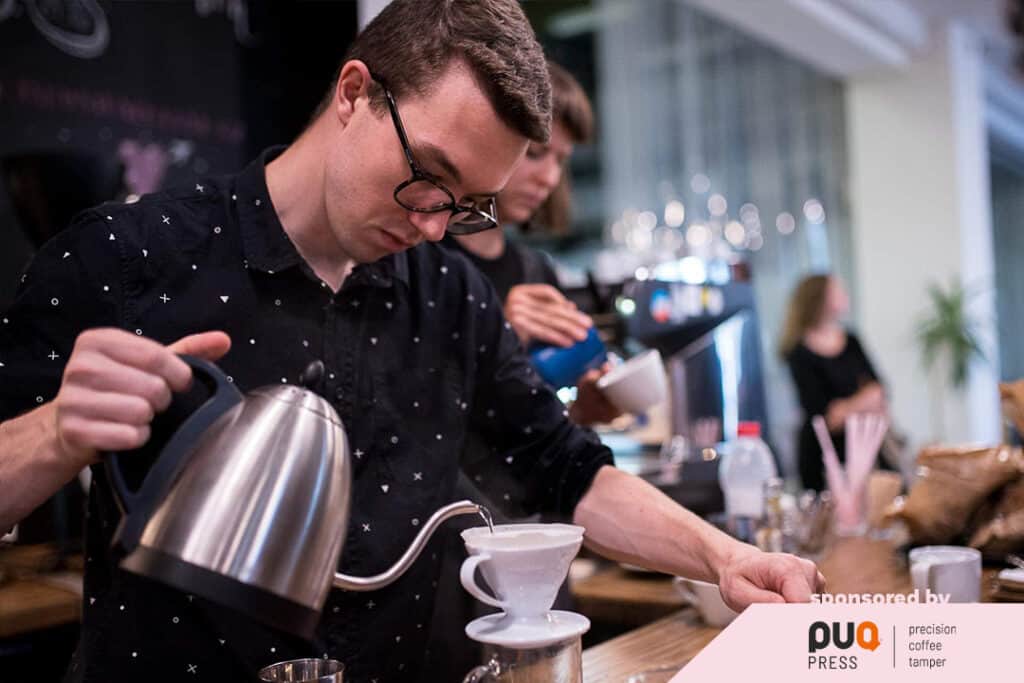
Vojtěch, what is your first memory with coffee?
The first strong memory I can recall is probably when my mum got a coffee machine for her birthday. I was around 9 at that time and I fell in love with the process of coffee preparation. You know, putting a scoop of cheap pre-ground coffee into a portafilter and pressing a button. I liked serving coffee to any guests that would visit. And I could have never imagined, that it would become my future.
Could you describe the moment or situation that made you decide to become a barista?
It was thanks to my dad, who read that some barista from Brno won the Czech Barista Championship at the newspapers and would be opening a café in Brno. I have visited that café with him, though I haven’t even been drinking coffee at that time. In fact, I worked in a teahouse. But I loved the fact that they have been weighing and measuring everything while preparing coffee.
However, the second, more important visit me and my dad took, was to the newly opened Industra in 2014, where they were serving filtred coffee in a device that look like directly taken from a laboratory. I have always loved chemistry, and that was the moment which threw me into the world of speciality coffee. So, when I was looking for a job during college, a café was an obvious choice.
Working with coffee was such a passion for me, that caffeine content in espresso and the way how water temperature influences the extraction of sensory active compounds for sweetness, bitterness and acidity became a topic of my bachelor thesis.
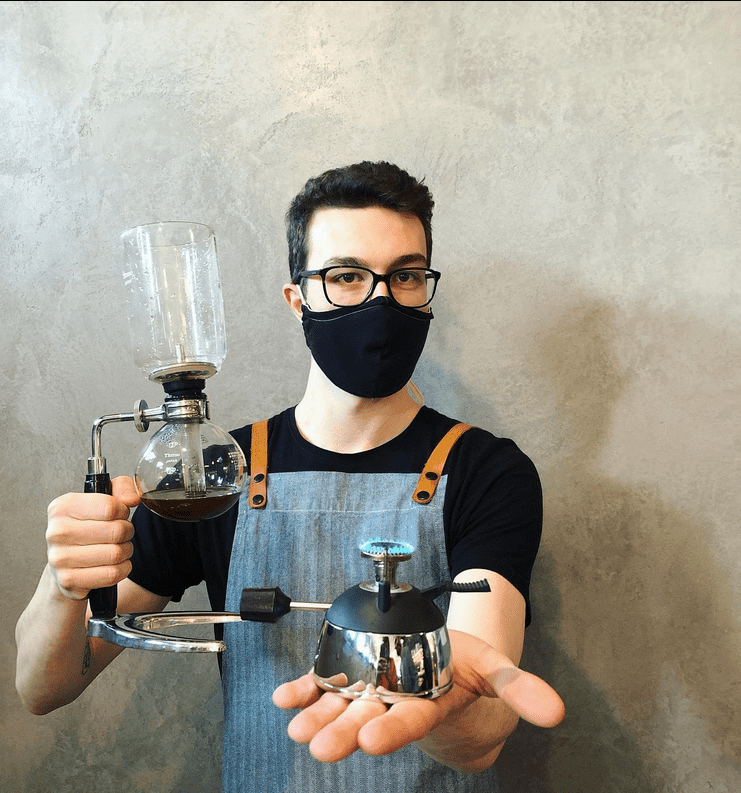

If a career in coffee was not an option, what job would you be doing?
I studied bioanalytics, so I would probably work in some clinical lab in a hospital or any other analytical facility. Anyways for me, science and coffee go hand in hand and I would love to connect coffee and labwork a bit further.
Do you have an unusual hobby that you love?
As a scientist, I love experiments, mainly in gastronomy. I love fermented food and drinks. I have made a lot of them by myself: beer, kombucha, kimchi, bread, yoghurt, lacto-fermented fruit and vegetables. You name it, I´ve tried it. And of course, I like to cook with it and eat it!
Are there any bad recommendations you hear often in your profession? What is your piece of advice for anybody starting a career as a barista?
I still hear, from time to time, that working in a café is just for students or it‘s only temporary. Why I went to study science if I wanted to stay in the coffee industry. But that is not true, is it? For me, coffee is science and everybody can discover what they like about it. Someone wants to put smiles on people‘s faces with their latte art, someone wants to help others start the day with a good cup of morning coffee, and someone is interested in the world of coffee or a mix of everything above.
My advice for beginning baristas would be to get advice from more skilled colleagues and learn from their mistakes. After all, a café is just a place, where people meet together and coffee is only a drink. There is no need to be stressed out, you can just continue doing your best step by step.
Another great thing is constantly educating yourself. Every day, there is new information or skill which you could learn, so coffee courses, festivals and cupping should be part of every barista’s life.
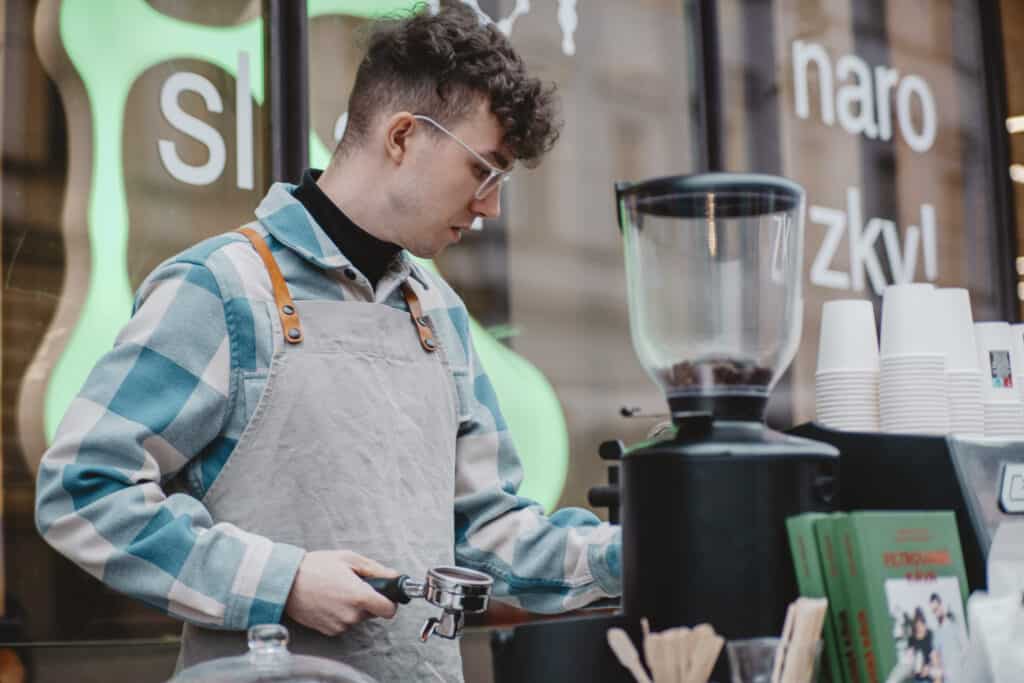
What’s the most common question you get asked during barista training? How do you answer it?
Because Industra has always been located in not-so-typical places for café, people sometimes ask if we make coffee. „Of course!“ I reply. „And which one would you like?“
Or they often ask for a ristretto, because there is this myth, that it doesn’t contain caffeine. So I usually offer them decaf or that I could make their drink using just half of the espresso, which has less caffeine than Pepsi.
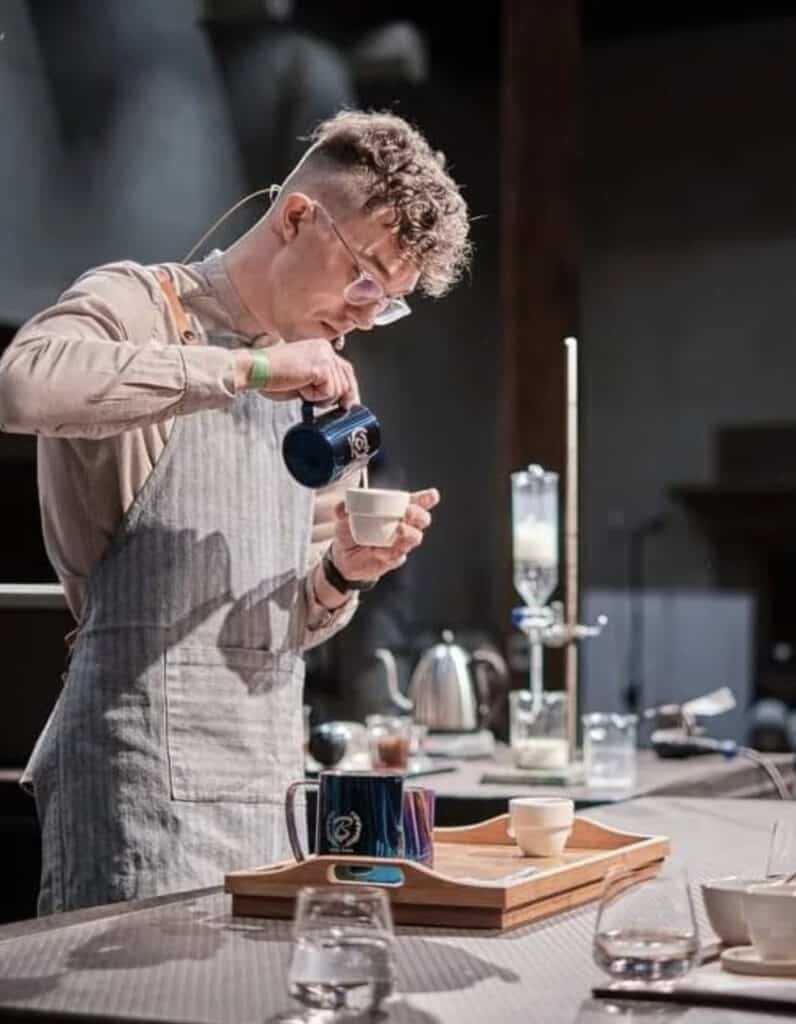
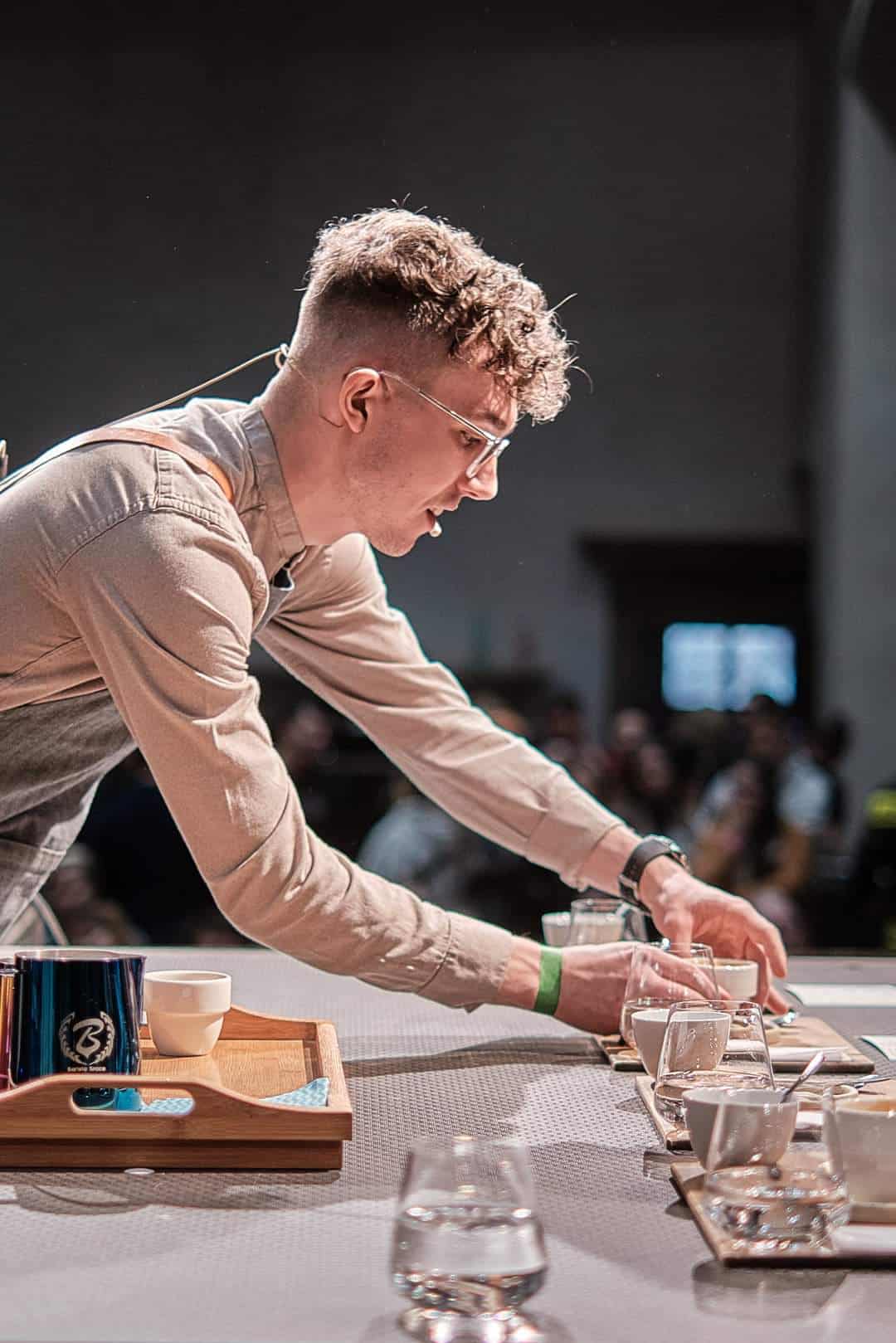
What’s the one coffee recipe that everybody should try? Why?
Lungo directly from the portafilter. 15 g in, 80 g out.
What is the one thing that you would miss the most if you could not work as a barista anymore?
Contact with customers and coffee people. The speciality coffee community in Czechia is not that big, but baristas from the whole country, and Europe, are meeting and sharing their knowledge and experiences. I would also miss many of our regulars who became friends over time.
What has been the best experience you have had in the speciality coffee industry so far?
Coffee competitions. Both as a competitor or part of the team. Coffee people are always keen to give advice, lend equipment or come to the training. And when we all meet at a championship or festival, we all cheer for each other and drink coffee together.

Quick Fire Questions for Vojtěch Formánek:
Would you serve filter coffee with milk if asked for it?
Sure, but I would suggest trying it without first.
Do you ever take sugar with your coffee?
Never.
Espresso or Filter coffee?
Both.
Do you aim for Sweetness, Acidity, or Body?
Balance, but prefer sweet and full-bodied coffees.
Milky or Black?
Black.
Slurp or Spit?
Slurp.
Sit in or Take Away?
Sit in.
Cake or Pastry with your coffee?
Both, I love sweets!
Favourite piece of barista equipment?
A WDT coffee distribution tool

